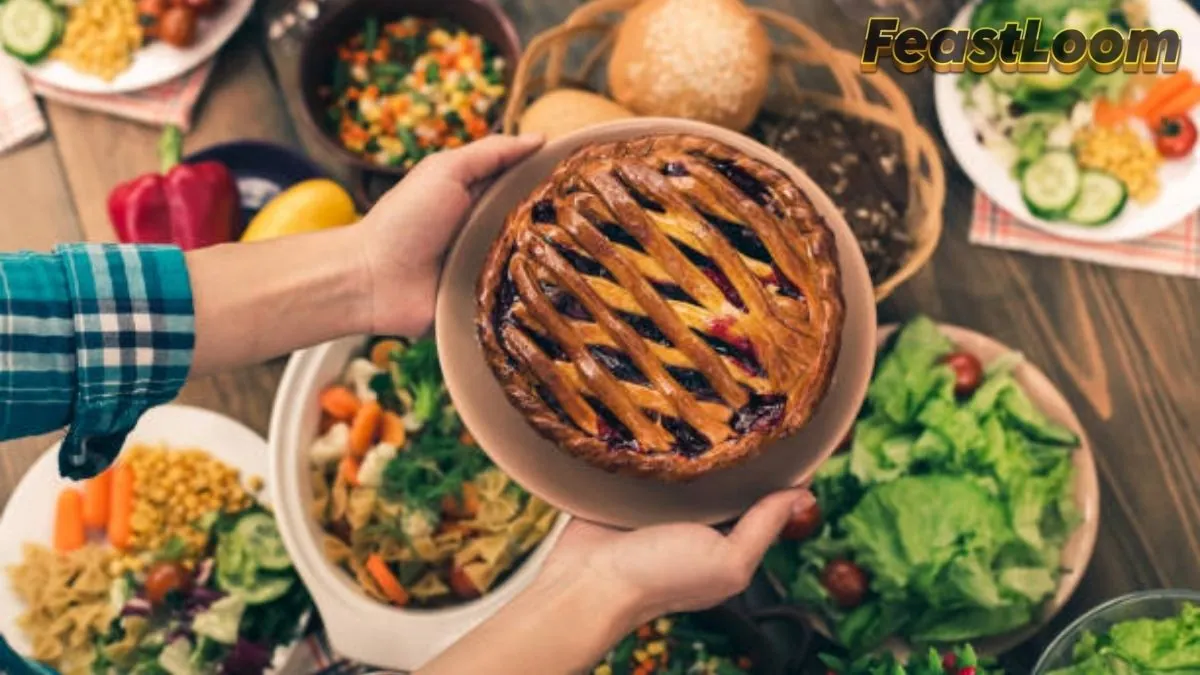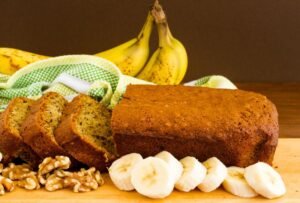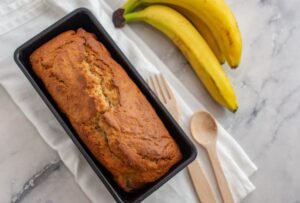What role does banana bread play in household sustainability habits?

What role does banana bread play in household sustainability habits?
Introduction: The Fascinating Role of Banana Bread in Household Sustainability
The topic of sustainability has garnered attention in recent years, with more and more households seeking ways to uphold this practice in their daily lives. One surprisingly impactful way to contribute towards this sustainable lifestyle lies in the humble loaf of banana bread. In this article, we will explore how the all-time favorite banana bread plays an essential role in household sustainability habits.
Banana Love: Baking Our Way Towards Sustainability
As far as baking goes, banana bread is an easy crowd-pleaser. Yet, its widespread appeal is not limited to taste and texture alone. Its key ingredient, the banana, is often a prime candidate for food waste. By making banana bread, homes can reduce their wastage significantly, transforming overripe and neglected bananas into a tasty treat.
A Bite into Food Waste
Food waste stands as a significant issue in sustainability. According to the United Nations Food and Agriculture Organization, around one-third of the food produced globally is not consumed and eventually becomes waste. In particular, bananas are often overlooked in households when they start to brown, even though they are still perfectly edible and ideal for banana bread. Incorporating these overripe bananas into your home baking routine provides an effective and delicious way to minimize food wastage.
- Resource-Friendliness: In comparison to other types of bread or cakes, banana bread requires fewer resources. In most recipes, bananas provide much of the sweetness and moisture, reducing the need for additional sugar, eggs, and oils. This makes banana bread more eco-friendly and promotes less consumer spending.
- Minimal Processing: Banana bread is typically made at home, reducing the need for industrial-grade processing, transportation, and packaging associated with store-bought loaves. This results in a decline of your household’s carbon footprint.
Breaking Down the Benefits of Baking Banana Bread at Home
Home baking, especially something as delightful as banana bread, keeps us tuned to the value of the ingredients we use. It encourages less wastage, introducing us to the wonderful world of ‘root-to-stem’ cooking where we waste less and enjoy more variety.
Embracing Eco-friendly Baking: Banana Bread at Its Best
When baking banana bread, choose environmentally friendly alternatives for common baking ingredients. Use organic flour or whole wheat flour instead of all-purpose white flour. Choose coconut sugar or organic unprocessed sugars instead of refined white sugar. These naturally derived ingredients offer greater nutritional values and lesser impact on Earth’s resources.
- Resourceful Recipe Variations: You can add various other overripe fruits, nuts, or seeds to your banana bread recipe. This is a perfect way to save neglected food items from becoming waste.
- Healthful Habit: Baking banana bread lets you control your ingredients. You get to choose healthier and sustainable options in your baking process.
Driving Change in Household Habits
While saving and using overripe bananas may seem like a small step towards sustainability, it is symbolic of a significant shift in mindset and habits. By baking banana bread and reducing food waste, households can contribute to global sustainability and positively affect climate change. Not to mention, enjoying a warm slice of banana bread with a cup of tea feels gratifying in more ways than one.
Encouraging Sustainable Practices for a Responsible Future
Banana bread isn’t just a nostalgic, comforting treat; it’s a testament to sustainable household habits. Whether we use organic ingredients or rescue overripe bananas from being tossed in the trash, our connection to food and understanding of sustainability grows with each delicious bite.
With this in mind, the act of baking banana bread takes on new significance. It’s no longer just about creating a sweet treat. It’s about being mindful of our resources, reducing waste, and making sustainable choices for a healthier family and a healthier planet.
Banana Bread: Striking a Balance between Sustainability and Indulgence
Ultimately, banana bread manages to strike a balance between sustainability and indulgence — a delicate and delicious act of juggling indeed. But the end product is well worth the effort – warm, comforting, and mindful of our planet. These loaves of home-baked goodness can go a long way in fostering sustainable habits, one slice at a time.
The Humble Loaf: From Household Treat to Sustainability Symbol
So, let’s make the most of our ingredients, reduce waste, and create something delicious. Let’s reclaim the power of being responsible consumers and bakers. Most of all, let’s turn to our trusted loaf of banana bread in our journey towards sustainability. Because when baked with love and a keen eye on sustainability, this humble loaf could be the sweetest step in our journey towards a sustainable household.

Learn More
Conclusion:
Conclusion
In essence, banana bread plays a vital role in promoting household sustainability habits. It encourages the concept of food waste reduction since overripe bananas, which might otherwise be thrown away, are the essential ingredient in this wholesome treat. This practice not only aids in minimizing household waste but also contributes to saving money. Additionally, making banana bread at home fosters the production and consumption of homemade food instead of commercial, packaged products. This not only benefits our health through reduced intake of preservatives and artificial ingredients but also lessens packaging waste, further promoting sustainability.
FAQ
FAQ
1. How does baking banana bread at home contribute to sustainability?
By using overripe bananas that would otherwise be discarded, you’re reducing food waste. Moreover, homemade banana bread involves no plastic packaging, which cuts down on non-biodegradable waste.
2. Is banana bread financially sustainable?
Yes, making banana bread is economically sustainable as it involves using leftover bananas and basic pantry items, thereby saving money.
3. How does banana bread impact health sustainability?
Choosing to bake banana bread at home allows control over what goes into your food, reducing the intake of artificial preservatives and additives found in commercially-bought bread.
4. Can banana bread be made with other leftover fruits?
Yes, you can use several other ripe fruits such as apples, berries or pears to make bread, further promoting the use of leftover items and contributing to sustainability.
5. What can be done with the banana peels?
Banana peels are compostable and can contribute to creating nutrient-rich soil in your garden.
6. Why is reducing food waste important?
Reducing food waste is essential for conserving resources, saving money, and minimizing the impact on the environment.
7. Can banana bread be baked without eggs for vegans?
Yes, there are various vegan banana bread recipes available that use ingredients like flax seeds, chia seeds or apple sauce as an alternative to eggs.
What role does banana bread play in household sustainability habits?

When you make purchases through the links available on our site, we may receive an affiliate commission at no additional cost to you.



